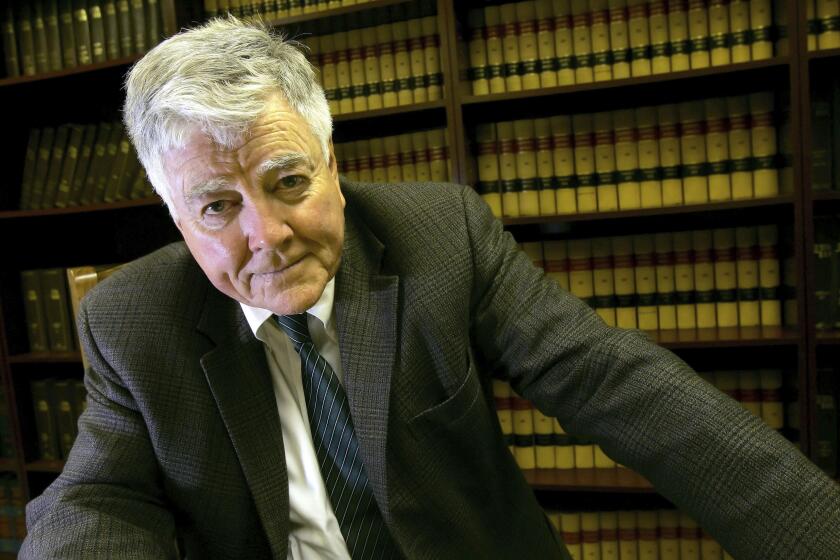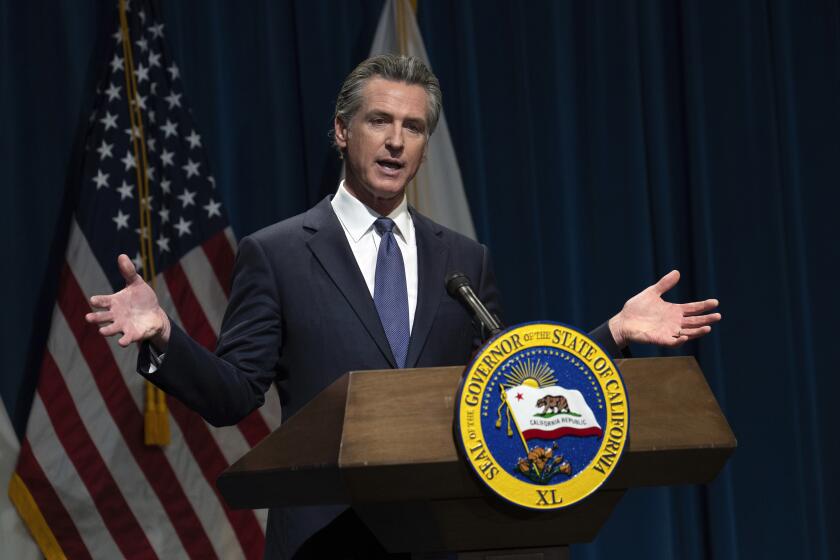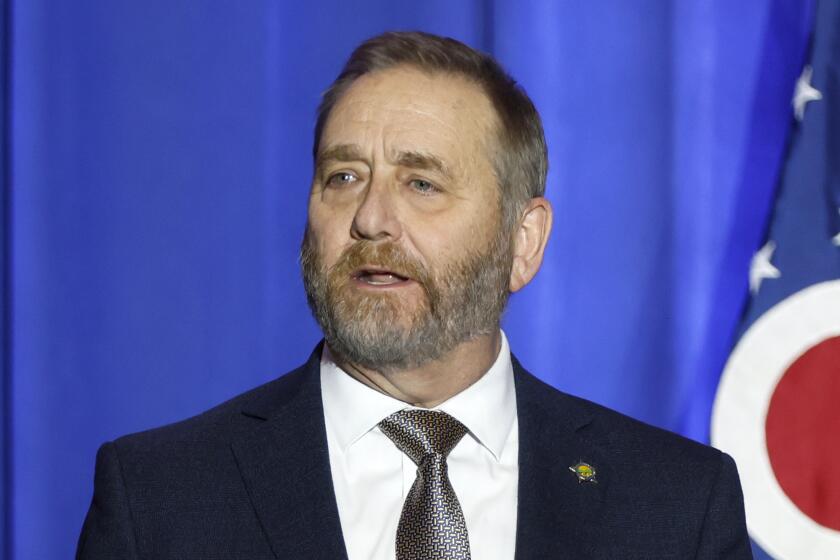Newest U.S. Envoy Likely to Be Afghan
The Bush administration is turning to the highest-ranking Afghan--and highest-ranking Muslim--in the U.S. government to become the first postwar ambassador to Afghanistan.
Zalmay Khalilzad, who was born in Mazar-i-Sharif but works in the stately offices of the National Security Council, is expected to be formally tapped for the key postwar job once the interim Afghan government is sworn in Saturday, according to senior administration officials.
Khalilzad would be the first full ambassador posted to Afghanistan since 1979 and would replace U.S. special envoy James Dobbins, who reopened the American Embassy in Kabul on Monday for the first time since it was evacuated in 1989.
An ethnic Pushtun, Khalilzad, known as Zal to friends, has not lived in Afghanistan since 1971 but is respected by many leaders among the disparate array of ethnic and religious groups and tribes, according to Afghan sources.
“Most Afghans know Zal back to the 1980s when he worked for the Reagan administration and at the Pentagon. He’s been involved with Afghan affairs whether he was in or outside of the administration. Most Afghans do respect him, even if there are certain disagreements,” said Omar Samad, director of the Afghanistan Information Center in Washington.
Khalilzad became the leading candidate after playing a critical behind-the-scenes role during the Bonn summit that established a new Afghan government this month, meeting late into the night with Afghan delegates and talking by phone with parties in Afghanistan threatening to withhold support for the U.N. process to launch a post-Taliban government, according to State Department officials.
“He worked incredibly hard, along with Dobbins, and made a big difference at important moments of the talks,” said a U.S. official involved in the diplomatic effort.
Khalilzad is widely perceived as an imaginative choice for a difficult assignment--like former prisoner of war Pete Peterson as the first postwar U.S. ambassador to Vietnam--because his personal knowledge has been critical to his success.
Khalilzad, who came to the United States as a high school exchange student, has gone through several transformations since then.
“Anyone who has seen Zal in recent years, with his very impressive haircut and tailored suits, would have a hard time recognizing him from the days he was a rather scruffy student with a beard and some pretty radical ideas, including some critical of the U.S. bias in the Middle East,” said Augustus Richard Norton, who became friends with Khalilzad when the Afghan returned to attend graduate school at the University of Chicago.
At Chicago, Khalilzad did his doctorate on the nuclear program in Iran, a nation for which he crafts U.S. policy as special assistant to the president and senior director at the NSC. At Chicago, his classmates included Deputy Secretary of Defense Paul D. Wolfowitz and former Pentagon official Richard Perle, two of the most influential hawks in Washington.
Khalilzad has changed his views on Afghan politics considerably in recent years. After the Taliban assumed power, he initially urged U.S. engagement with the movement.
“The Taliban does not practice the anti-U.S. style of fundamentalism practiced by Iran,” he wrote in the Washington Post in 1996. He urged the Clinton administration to provide “recognition and humanitarian assistance. . . . It is time for the United States to reengage” with Taliban-controlled Afghanistan, he said. At the time, he worked at the Rand Corp. think tank.
But he later reversed course and last year urged Washington to help destroy the movement. He warned that the Taliban was infecting the entire region.
“The danger is growing. Soon the movement will be too strong to turn away from rogue behavior. It will gain more influence with insurgents, terrorists and narcotics traffickers and spread its abusive ideology throughout the region,” he wrote in the Washington Quarterly.
Khalilzad’s appointment would ensure that Afghanistan has the ear of top U.S. policymakers.
“Afghans are going to get an ambassador who is going to be able to pick up the phone and get anyone, from [National Security Advisor Condoleezza] Rice to [Defense Secretary Donald H.] Rumsfeld,” said a former U.S. diplomat to Afghanistan who asked to remain anonymous.
Since the Kabul mission was closed in 1989, diplomacy and analysis on Afghanistan have been run through the U.S. Embassy in Pakistan, which has given recommendations and policy a distinct Pakistani perspective, he added.
As part of his NSC duties, Khalilzad is scheduled to fly to the area on a two-week fact-finding trip after Christmas. Dobbins is scheduled to leave the Afghan capital after the government of interim Prime Minister Hamid Karzai is installed, State Department officials say.
More to Read
Start your day right
Sign up for Essential California for news, features and recommendations from the L.A. Times and beyond in your inbox six days a week.
You may occasionally receive promotional content from the Los Angeles Times.






